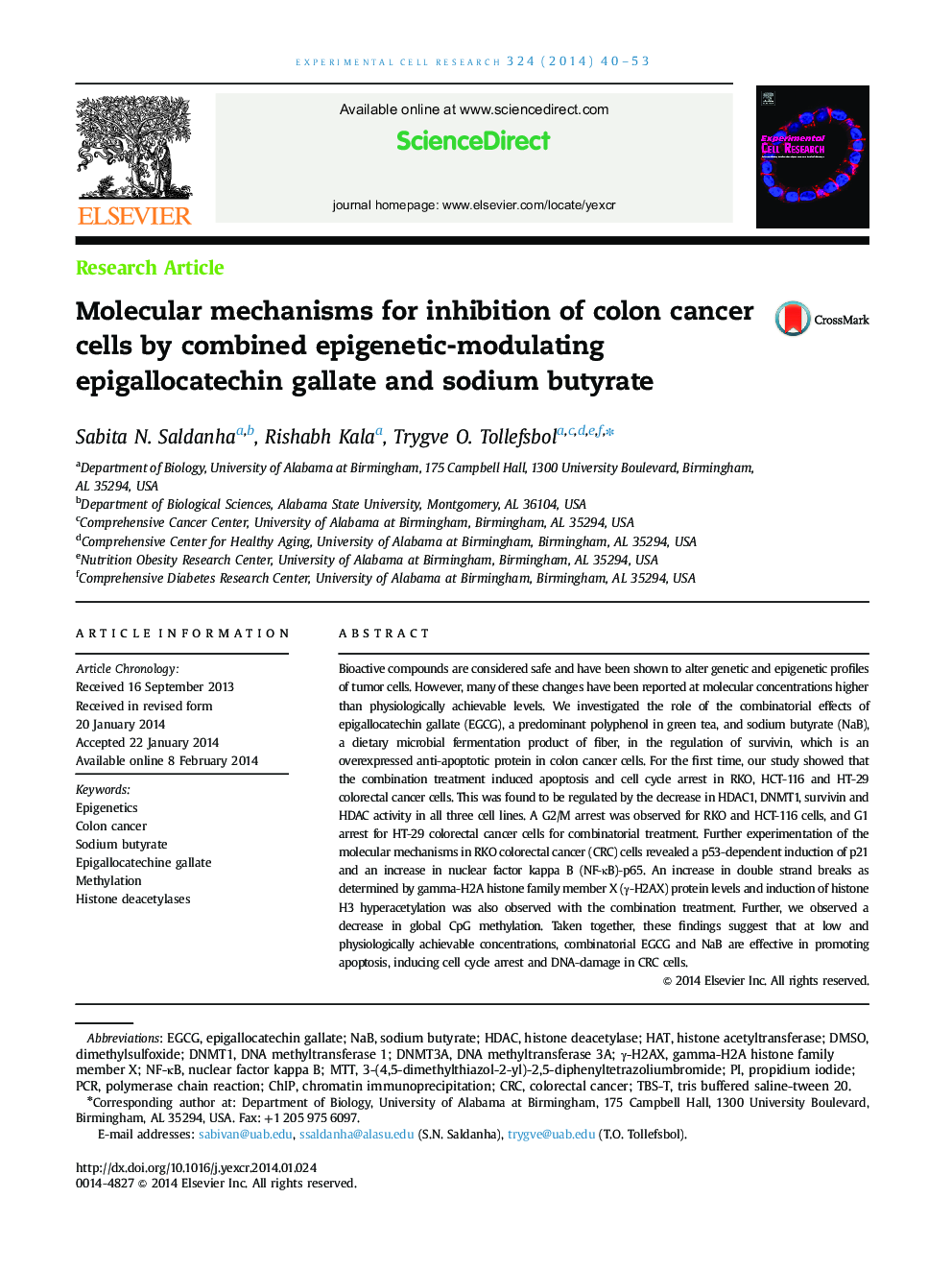| Article ID | Journal | Published Year | Pages | File Type |
|---|---|---|---|---|
| 2130322 | Experimental Cell Research | 2014 | 14 Pages |
•EGCG and NaB as a combination inhibits colorectal cancer cell proliferation.•The combination treatment induces DNA damage, G2/M and G1 arrest and apoptosis.•Survivin is effectively down-regulated by the combination treatment.•p21 and p53 expressions are induced by the combination treatment.•Epigenetic proteins DNMT1 and HDAC1 are effectively down-regulated by the treatment.
Bioactive compounds are considered safe and have been shown to alter genetic and epigenetic profiles of tumor cells. However, many of these changes have been reported at molecular concentrations higher than physiologically achievable levels. We investigated the role of the combinatorial effects of epigallocatechin gallate (EGCG), a predominant polyphenol in green tea, and sodium butyrate (NaB), a dietary microbial fermentation product of fiber, in the regulation of survivin, which is an overexpressed anti-apoptotic protein in colon cancer cells. For the first time, our study showed that the combination treatment induced apoptosis and cell cycle arrest in RKO, HCT-116 and HT-29 colorectal cancer cells. This was found to be regulated by the decrease in HDAC1, DNMT1, survivin and HDAC activity in all three cell lines. A G2/M arrest was observed for RKO and HCT-116 cells, and G1 arrest for HT-29 colorectal cancer cells for combinatorial treatment. Further experimentation of the molecular mechanisms in RKO colorectal cancer (CRC) cells revealed a p53-dependent induction of p21 and an increase in nuclear factor kappa B (NF-κB)-p65. An increase in double strand breaks as determined by gamma-H2A histone family member X (γ-H2AX) protein levels and induction of histone H3 hyperacetylation was also observed with the combination treatment. Further, we observed a decrease in global CpG methylation. Taken together, these findings suggest that at low and physiologically achievable concentrations, combinatorial EGCG and NaB are effective in promoting apoptosis, inducing cell cycle arrest and DNA-damage in CRC cells.
